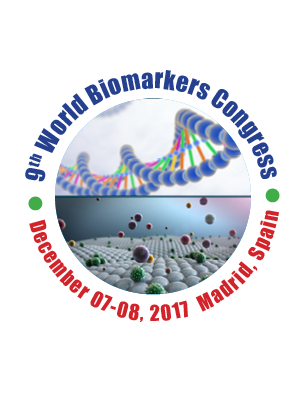
M Davenport
Salford Royal NHS Foundation Trust, UK
Title: Gastric Endoscopic Submucosal Dissection (ESD) as a treatment for early neoplasia and for accurate staging of early cancers in UK Caucasian population
Biography
Biography: M Davenport
Abstract
Aim: To investigate the effi cacy of Endoscopic Submucosal Dissection (ESD) at diagnosing and treating superfi cial neoplastic lesions of the stomach in a Caucasian population.
Methods: Data of Caucasian patients treated with or considered for ESD at a tertiary referral center were retrieved for a 3-year period. Primary outcomes were curative resection (CR), which was defi ned as ESD resections with clear margins and an absence of lymphovascular invasion, poor diff erentiation and submucosal involvement on histology. Secondary outcomes were reversal of dysplasia at 12 months follow-up and/or at the latest follow up. Change in histological diagnosis pre and post ESD was recorded.
Results: Twenty four patients were identifi ed with intention to treat. Nineteen patients were considered eligible, and ESD was attempted on 25 lesions, 4 of which failed and were aborted. Out of 21 ESD performed, en-bloc resection was achieved in 71.4% of cases. Resection was considered complete on endoscopy in 90.5% of cases compared to only 38.1% on histology. Six resections were considered curative (28%), 5 non-curative (48%) and 10 indefi nite (24%). ESD changed the histological diagnosis in 66.6% of cases post ESD. Endoscopic follow-up in the indefi nite group and CR group showed that 50% and 80% of patients were clear of dysplasia at the latest follow-up respectively; 2 cases of recurrence were observed in the indefi nite group and survival rate for the entire cohort was 91.7%.
Conclusion: This study provides evidence for the effi cacy of ESD as a therapeutic and diagnostic intervention in Caucasian populations and supports its application in the UK.

